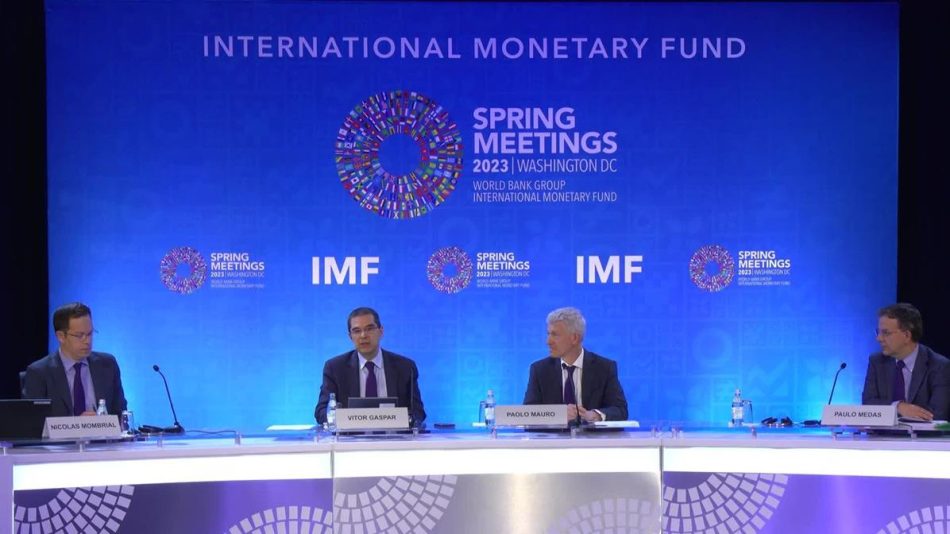IMF Fiscal Monitor Debt Presser

IMF
Global debt levels are rising faster than predicted, with the bulk of future boosts coming from China and the US the IMF said Wednesday (April 12) in Washington, DC..
“Three years after the pandemic, fiscal policy has moved a long way towards normalization. Already, in 2021 and 2022, debt and deficits fell rapidly from record levels to a low for extraordinary support in the early stages of COVID 19. Many countries suspended fiscal rules. Now, most of these countries plan to go back to rules, often after some rethinking. However, despite having come all the way down from unprecedented levels reached in 2020, global public debt is more elevated and projected to grow faster than foreseen before the pandemic,” Vitor Gaspar, head of the Fiscal Affairs Department told reporters at the press conference for the Fiscal Monitor report.
“These global trends are shaped by some large advanced and emerging market economies. Brazil, China, Japan, South Africa, Turkey, the UK and the U.S. are all projected to see increases in public debt ratios in excess of five percentage points of GDP over 2023 to 2028, with the two largest economies contributing most to the increase,” Gaspar explained.
65 percent of countries outside that main group are in debt distress already or at high risk of debt distress, Gaspar said. The Fund is urging action to reduce or forgive debt for those countries.
“The IMF has as one of its priorities to contribute to ease those financing constraints. And it’s calling on the global community and the community of creditors to act. One important aspect is to act on timely debt resolution. The G20 has the common framework to resolve these issues. It’s important to have it working more expeditiously that up to now. And the IMF, the World Bank and the India presidency of the G20 have put in place a global sovereign roundtable that is meant to help bringing together important stakeholders in this direction,” said Gaspar.
But for those countries with immediate needs, persistently high inflation and the Russian invasion of Ukraine have caused problems in financing.
“More than 130 million people in Africa alone are living under extreme food insecurity. So what we recommend in these perspectives, yes, you need a tight fiscal policy for the reasons that have been already mentioned. One is obviously to contain inflation, but the other is this heightened debt sustainability concerns and the lack of access to financing under this much tighter global financial conditions for especially for low-income countries,” Gaspar concluded.
The full report is available at Fiscal Monitor April 2023 (imf.org)





